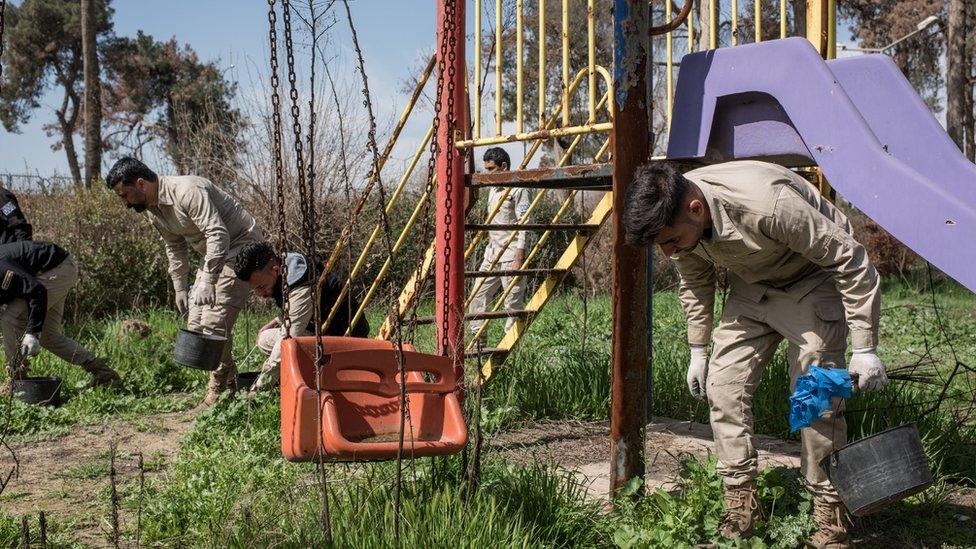UK announces Iraq explosive clearance funds
- Published

More than 40 explosives were found in this former playground in Mosul
The UK is to give an extra £5m to help clear Islamic State (IS) explosives in Iraq, the government has announced.
The Department for International Development (DfID) funding is in addition to the £24.9m the UK has contributed to demining projects in the country since 2015.
The money will be given to the United Nations Mine Action Service.
The UK is committed to spending 0.7% of gross national income on overseas aid - spending £14.1bn in 2017.
The biggest recipients were Pakistan, Nigeria, Ethiopia, Syria and Somalia.
About 1.8 million people are still displaced in Iraq and DfID says removing explosives from schools, hospitals and roads will help the country to return to normality.
In 2018, 16,500 explosives, 800 suicide belts and 2,000 explosive traps were cleared from the country.
Teams have cleared locations including a hospital used as IS's headquarters in Mosul, where 3,500 explosives were found and a school in Fallujah rigged with 13 IEDs.
The funding will support six explosive clearance teams across the country's Sinjar Province, an area with a large Yazidi population that has been one of the worst affected by the occupation by Islamic State fighters.
Iraq's government announced in December 2017 that its war against IS was over, almost four years after the group, which is also known as Daesh, first seized parts of the country.
International Development Secretary Penny Mordaunt said: "Daesh's sickening use of explosive traps continues to threaten children in their schools, mothers in hospitals and thousands of innocent people trying to return to a normal life.
"Thanks to this UK aid funded work, people can return to work, children can go back to school and lives are slowly being rebuilt.
- Published22 October 2016
- Published4 December 2018
- Published23 March 2019